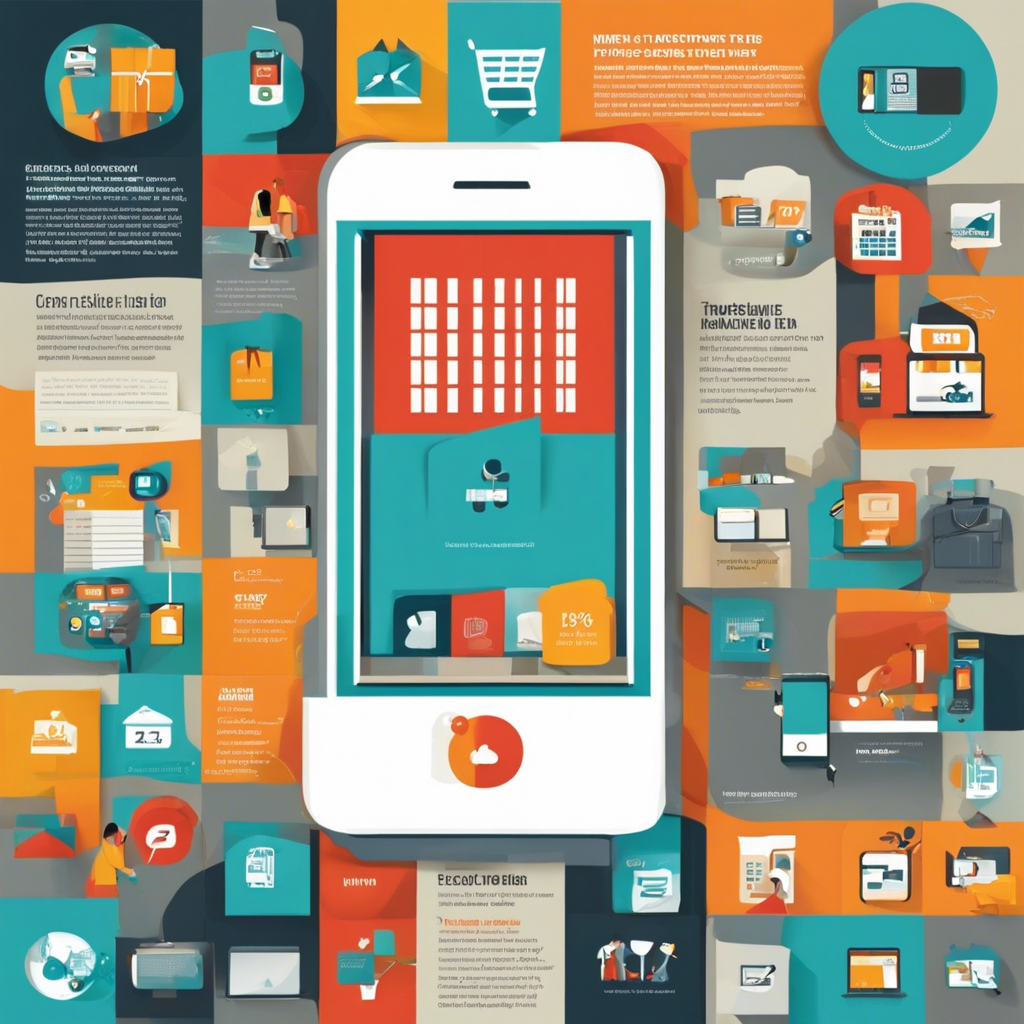Mobile marketing’s impact on consumer behavior is significant, with smartphones enabling personalized, targeted campaigns and immediate consumer responses.
In today’s fast-paced digital world, the way businesses reach and engage with consumers has significantly evolved. The rise of mobile devices, particularly smartphones, has revolutionized marketing strategies, giving birth to *mobile marketing*. This innovative approach allows companies to connect with customers on a personal level, leveraging the power of these ubiquitous devices. The impact of mobile marketing on consumer behavior is profound and multifaceted, and understanding this dynamic relationship is essential for businesses aiming to thrive in the modern marketplace.
With over 5.27 billion smartphone users worldwide, mobile marketing offers an unparalleled opportunity for brands to reach their target audience. This article explores the intricate relationship between mobile marketing and consumer behavior, delving into the strategies employed by businesses and the responses they evoke from consumers.
The Rise of Mobile Marketing
The advent of mobile marketing can be traced back to the widespread adoption of smartphones. As these devices became more powerful and affordable, they transformed into indispensable tools for consumers, offering a gateway to information, communication, and entertainment at their fingertips. Recognizing this shift, businesses began to tap into the potential of mobile marketing, developing strategies to engage with consumers in a more personal and interactive manner.
Strategies and Techniques in Mobile Marketing
Mobile Advertising
One of the most prominent aspects of mobile marketing is advertising. Businesses can target specific demographics, locations, and even individual interests through platforms like Google Ads and Facebook Ads Mobile Marketing Trends. This targeted approach ensures that ads are displayed to the right audience, increasing the likelihood of engagement and conversion. For instance, a coffee shop could target local residents with ads promoting their new seasonal beverage, providing a direct link for ordering.
**Personalized Content and Offers**
Dynamic Content
Mobile marketing allows for dynamic content, tailored to individual users’ preferences and behaviors. Retailers can offer personalized product recommendations based on previous purchases or browsing history. This level of personalization enhances the user experience and encourages repeat purchases.
Location-Based Services
Understanding the power of location-based marketing, businesses use GPS data to provide relevant offers and suggestions to nearby customers. For instance, a restaurant can send push notifications with exclusive discounts to potential diners in the vicinity, increasing foot traffic and sales.
Mobile Loyalty Programs
Loyalty programs have been reimagined for the mobile era, offering added convenience and engagement. Customers can earn rewards, access exclusive deals, and receive personalized offers, all through a dedicated mobile app. This fosters brand loyalty and encourages repeat purchases.
Mobile Engagement Through Apps and Social Media
Mobile apps and social media platforms play a pivotal role in engaging consumers. Apps offer a direct channel to communicate with customers, providing updates, exclusive content, and personalized notifications. Social media, with its vast user base and engagement potential, enables businesses to connect with consumers on a more personal level.
Consumer Behavior and Mobile Marketing Effectiveness
The success of mobile marketing is evident in its influence on consumer behavior. A study by eMarketer revealed that mobile marketing drives a significant increase in consumers’ adoption of retailers’ apps and websites, with 44% of shoppers citing mobile ads as influential in their purchase decisions.
Increased Brand Awareness and Engagement
Mobile marketing campaigns effectively raise brand awareness by delivering targeted messages to a captive audience. Consumers are more likely to engage with ads that align with their interests and demographics, leading to higher click-through rates and conversions.
Consumer-Centric Approach
Mobile marketing allows businesses to adopt a consumer-centric approach. Understanding consumer preferences, behaviors, and needs is crucial for crafting personalized experiences that drive loyalty and repeat business.
Rapid Response and Instant Gratification
Mobile devices enable consumers to respond immediately to marketing efforts. Whether it’s redeeming a promotional offer, making a purchase, or engaging with content, the convenience and immediacy of mobile engagement contribute to its effectiveness.
FAQs
What are the key differences between mobile marketing and traditional marketing?
Mobile marketing differs from traditional marketing in its ability to target specific individuals, personalize content, and provide real-time interactions. Traditional marketing, such as print or television ads, often relies on broader audiences and less personalized messaging.
How do mobile marketing campaigns benefit businesses?
Mobile marketing campaigns offer businesses a cost-effective way to reach and engage their target audience. The ability to track and analyze campaign performance in real-time allows for more informed decision-making and campaign optimization.
What role does data play in mobile marketing?
Data is crucial in mobile marketing, enabling businesses to understand consumer behavior, preferences, and demographics. This data-driven approach helps create more effective campaigns, personalized content, and targeted advertising.
Conclusion
Mobile marketing has reshaped the way businesses interact with consumers, offering unprecedented opportunities for personalized engagement. Through mobile advertising, apps, and social media, brands can connect with their audience, fostering loyalty and driving sales. As consumers increasingly rely on mobile devices, understanding the impact of mobile marketing on consumer behavior is essential for businesses to stay competitive and deliver exceptional experiences.
Suggested External Links:
1. eMarketer: Mobile Marketing Drives Consumer Adoption of Retailers’ Apps and Websites
2. Think with Google: Mobile Marketing Strategies
3. Forbes: Mobile Marketing Trends to Tap Into During the Pandemic and After
